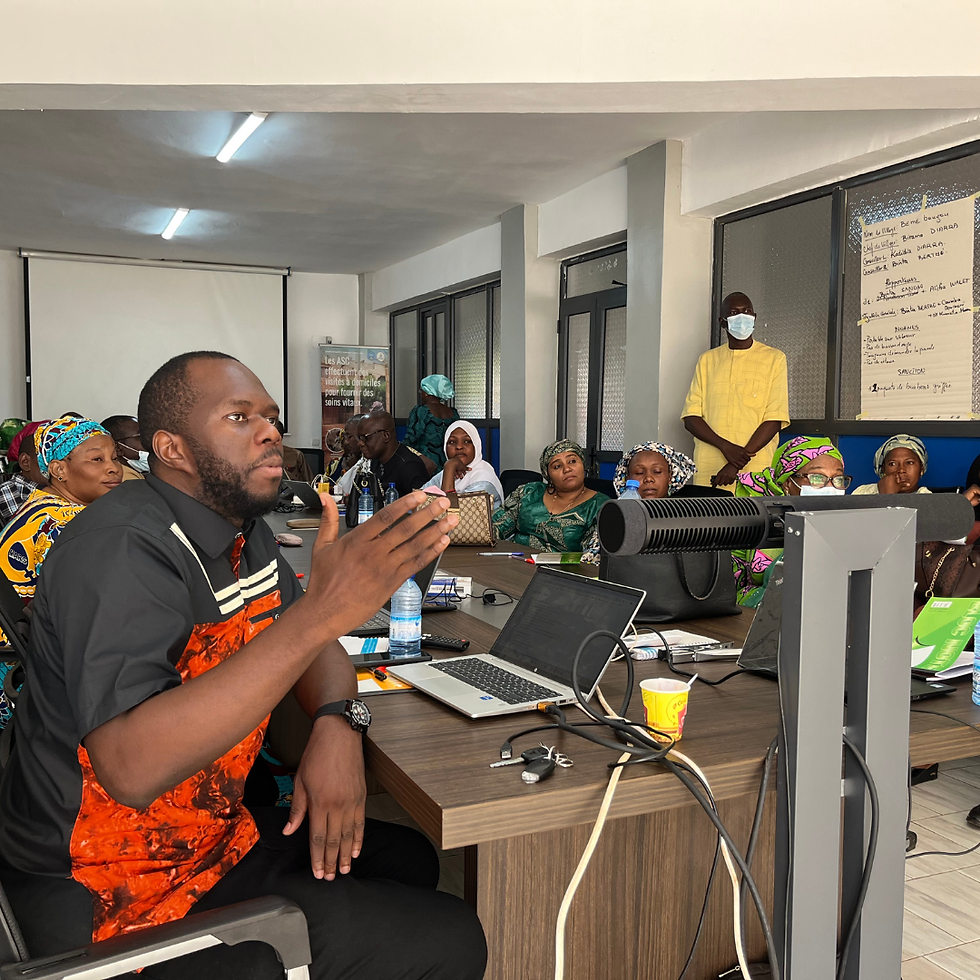New Care Package Provides Women with Family Planning Options and Education
- Muso

- Mar 19, 2016
- 2 min read
Updated: Oct 26, 2020

Three months after Muso introduced a Proactive Reproductive Health module to our home care services, nearly 1,200 women have so far accessed family planning and prenatal care. Muso’s Community Health Workers now routinely offer pregnancy tests and family planning consultations during their door-to-door case finding visits.
Mali has one of the world’s highest maternal mortality rates in the world, and more than 1 in 10 women of reproductive age has never heard of any kind of contraception.
These statistics reflect serious access barriers to family planning tools and knowledge about reproductive health services, which can have life-threatening consequences. We anticipate our proactive care model will dramatically improve maternal and newborn health outcomes by providing early access to prenatal support, contraception, and family planning.
Neonatal illness is among the leading causes of under-five child mortality in Mali, so reaching new mothers early is essential to saving lives. In the first three months of the new Proactive Reproductive Health module, CHWs identified 228 newly-pregnant women for enrollment in prenatal consultations at our partner clinic.
With a referral to our partner clinic in Yirimadjo’s Muso-supported health center, women receive further consultation and prenatal treatment to help them make informed decisions about their own reproductive health and the health of their developing child.
For women who report they are not actively trying to become pregnant, our CHWs offer a menu of contraceptive and family planning options that can be safely and reliably administered in the home.
Out of nearly 1,000 women who selected a form of contraception offered by their Muso CHW, about 60% chose home-based methods, such as an injectable contraceptive or contraceptive pills. The remaining 40% opted for IUDs or implants, and were provided clinic referrals directly from their CHW during their visit.
Importantly, for women connecting with prenatal care as well as those choosing family planning tools, Muso removes point-of-care user fees that can act as a barrier to accessing such care.



Comments